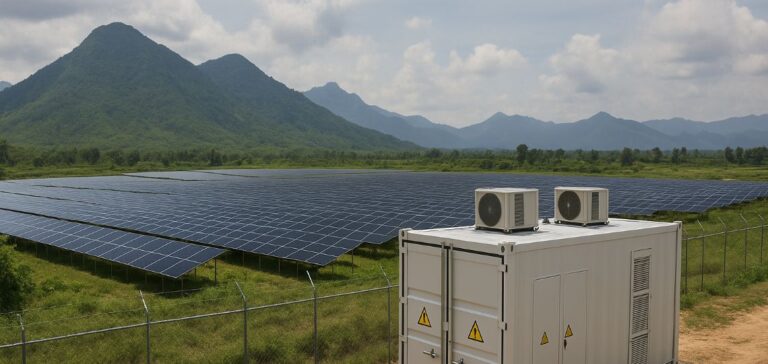The US administration plans to impose tariffs of up to 3.521% on solar panels produced in Cambodia, Vietnam, Thailand and Malaysia. This decision follows a trade investigation which concluded that companies operating in those countries received Chinese subsidies creating an unfair advantage over American manufacturers.
Manufacturers forced to abandon the US market
China currently accounts for 80% of global solar panel production and holds a dominant position at every stage of the supply chain. In response to growing US protectionist pressure, several Chinese companies had relocated part of their manufacturing to Southeast Asia. With the new tariffs, these avoidance strategies have become ineffective.
According to Putra Adhiguna, Director at the think tank Energy Shift Institute, “commercial exports of photovoltaic products to the United States will become virtually impossible.” Some companies are now facing duties increasing costs thirty-fivefold, especially those operating in Cambodia and Thailand.
Regional reallocation of production capacity
This abrupt shift in the US market may accelerate a pivot toward local and regional markets. Ben McCarron, Director of the Singapore-based consultancy Asia Research & Engagement, believes the current trade war could “accelerate the energy transition in Southeast Asia.” Producers, facing oversupply and the closure of traditional export routes, may help stimulate local demand.
In 2024, more than 80% of Malaysia’s electricity generation still relied on fossil fuels. Kuala Lumpur aims to raise the share of renewables to 24% by 2030 but lags behind global trends in falling solar and wind power costs.
Vulnerability of solar export strategies
Muyi Yang, Lead Analyst at the group Ember, noted that Southeast Asia’s solar industry has so far operated under an opportunistic model, favouring exports over domestic demand. Losing access to the US market may push the sector to adopt more stable local development strategies, although no regional market currently offers comparable absorption capacity.
India and Indonesia have already introduced protectionist policies to support their national solar industries, limiting mass imports of solar components. For solar manufacturers, the challenge will be to balance stock clearance efforts with uneven public policy developments across the region.






















